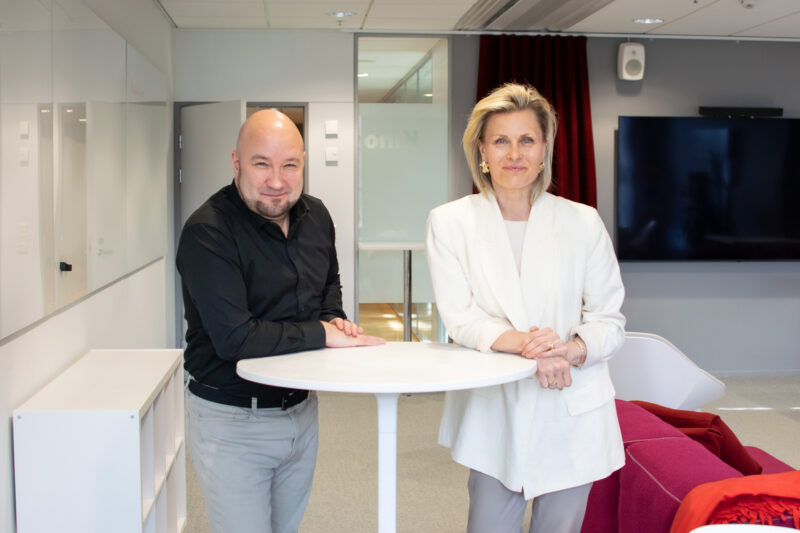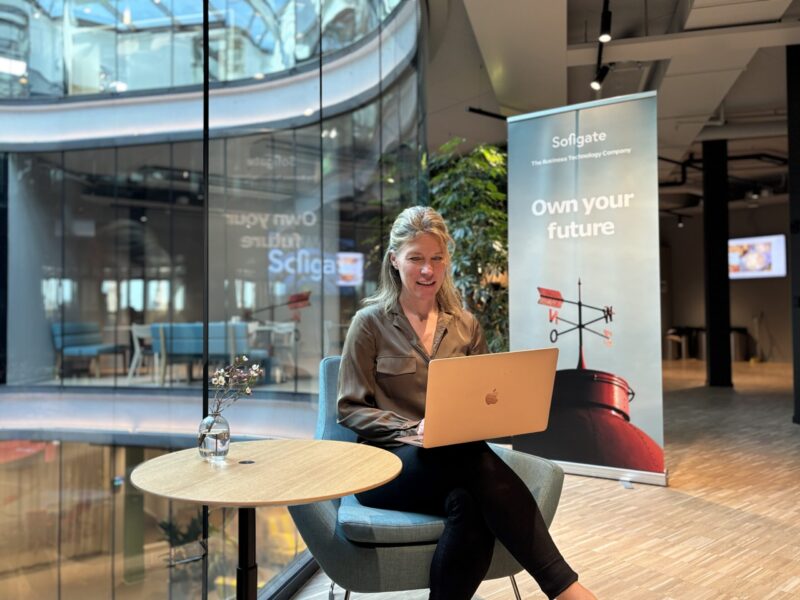AI does not replace the worker – it makes them irreplaceable
To ensure our competitiveness, Finland must become a superpower in the application of AI. It’s not technology but people that are the main drivers, argue Anna de Torres and Sami Karkkila from Sofigate.
Significant changes in organisations are usually either top-down or bottom-up. Both ways have their pros and cons.
Top-down change is initiated by management and proceeds through rules and guidelines in the organisation. In this case, change is integrated into the strategy and operational activities of the organisation, at least at the top level. The weakness of this approach, however, is that it does not always take sufficient account of the practical working conditions and does not exploit the initiative and creativity of the organisation’s employees. As a result, reforms based on management’s grand bargaining often meet with resistance that is both justified and based on pure resistance to change.
Bottom-up change, on the other hand, starts from the everyday work of employees. New processes and technologies, adopted by employees and teams on their own initiative, are gradually being adopted on such a scale that they become the new working standards. However, embedding change in business strategy and extensive customer projects can take a long time.
Everyone is a learning individual
The most significant change revolutionising work today is artificial intelligence. Its adoption has also gone both ways in different organisations.
Some companies have developed grand AI strategies and plans for using AI, but adopting new tools has often been slow. In others, employees have been quietly embracing AI services. However, practices have been fragmented and unguided, and not even the best practices have spread throughout the organisation. Strategic management can be completely unaware of new tools and how to use them.
Sofigate has chosen a third way in terms of AI. We want AI to be a strategic asset for our company and a superpower for everyday work. That’s why we are implementing its deployment simultaneously top-down and bottom-up – and horizontally, from employee to employee.
Sofigate’s goal is to have every employee in the company use AI in their daily work by the end of this year. With the goal of making AI as commonplace a tool and a basic everyday skill as email or a smartphone, we’ve made it an employee benefit, like a web and phone connection. In other words, we’re paying for AI services for all our employees.
Employees have the freedom and opportunity to experiment with different ways of using generative AI and find the most suitable ways to use the new tools. We encourage all our employees to discover their own superpowers and embrace new things in ways that strengthen their core skills. This is based on a growth mindset, the idea of each employee as a learning individual.
At the same time, we have launched various competitions, trained internal advocates and started a mentoring programme where more experienced employees mentor more cautious ones. In this way, we are lowering the threshold for adoption and ensuring that knowledge of successful new practices is effectively spread throughout the organisation.
In parallel, we seek new solutions to business processes in workshops with our customers. Management actively monitors the various experiments to ensure that the results are considered in business planning and that best practices are shared with customers. The personal example of management is also important: for example, our CFO has already started using AI as a reporting tool.
Superpower makes the worker indispensable
Developing AI is a huge investment, requiring vast amounts of money and resources. This is why Finland has no realistic chance of becoming an AI superpower. Sweden has also come to the same conclusion, abandoning projects already underway developing its own AI technology.
However, we must strive to become an AI superpower, as this is the only way to ensure our competitiveness when new technologies are revolutionising work efficiency and speeding up business processes from months to days and from days to hours.
The best way to do this is by leveraging the investments of international tech giants in our own Nordic people-centric way. By empowering employees to find their own ways of using new tools, we can harness the potential of modern business platforms in a way that fits our work culture, business and society. At Sofigate, we have long believed combining Nordic equality and empowerment with technological leadership is a winning recipe for international success. The same applies to AI.
The key to success is not the technology itself but the people who use it. The real productivity leap will not come from AI replacing workers. It comes from making every worker indispensable.
Read more:
Attract talent with the right attitude
Authors
Anna de Torres is Sofigate’s Head of People and Culture. In addition to HR, she has worked in marketing and business strategy and studied positive psychology. Anna is passionate about helping and supporting individuals and organisations to achieve their best by fostering good team spirit and a growth mindset.
Sami Karkkila is CEO of Sofigate, agrowth company specialising in business technology transformation. Sofigate has over 700 employees in Finland, Sweden, Denmark and Hungary. In the Karkkila blog series, the CEO discusses sustainable growth management in the new, ever-changing reality.



